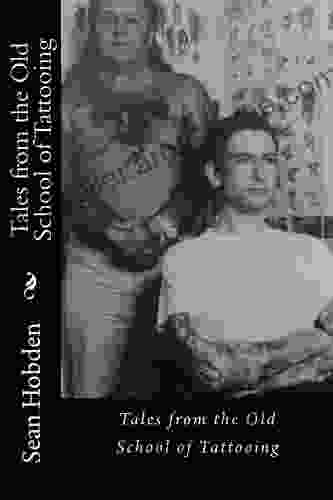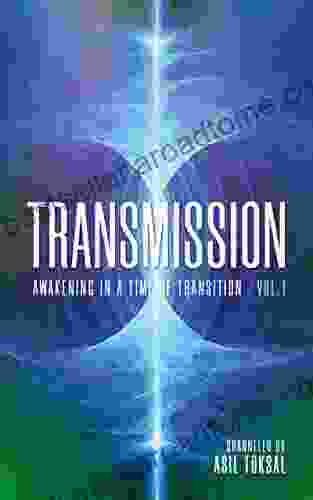The First Minds: Unraveling the Secrets of Consciousness

In the vast expanse of scientific inquiry, the question of consciousness remains one of the most enigmatic and captivating mysteries. What is this elusive force that allows us to experience the world around us? How did it evolve, and where did it originate?
In his groundbreaking book, "The First Minds: Caterpillars, Karyotes, and Consciousness," evolutionary biologist Alex Kacelnik sets out to tackle these fundamental questions. Through a meticulous examination of the latest scientific discoveries, Kacelnik argues that consciousness is not a recent development unique to humans, but rather a primordial phenomenon that has been evolving for billions of years.
4.7 out of 5
| Language | : | English |
| File size | : | 2083 KB |
| Text-to-Speech | : | Enabled |
| Screen Reader | : | Supported |
| Enhanced typesetting | : | Enabled |
| Word Wise | : | Enabled |
| Print length | : | 296 pages |
| Lending | : | Enabled |
The Caterpillar Connection
At the heart of Kacelnik's hypothesis lies the humble caterpillar. These seemingly simple creatures, with their tiny brains and limited cognitive abilities, may hold the key to understanding the origins of consciousness.
Kacelnik presents compelling evidence that caterpillars possess a rudimentary form of consciousness. They can sense their surroundings, navigate complex environments, and even make decisions about their behavior. These abilities suggest that consciousness is not something that emerged abruptly in the human brain, but rather a gradual evolutionary process that has been shaped over millions of years.
Karyotes and the Birth of Cells
Another key component of Kacelnik's theory is the role of karyotes. Karyotes were the first cells to develop a nucleus, a membrane-bound compartment that houses the cell's genetic material. This evolutionary breakthrough paved the way for more complex cellular structures, including the human brain.
Kacelnik argues that the emergence of karyotes was a pivotal moment in the evolution of consciousness. By separating the cell's genetic material from the rest of its machinery, karyotes created a protected space where consciousness could develop and flourish.
The Long Road to Human Consciousness
The journey from caterpillar to human consciousness was not a simple or linear path. Over hundreds of millions of years, countless species evolved and adapted, each contributing to the gradual refinement of consciousness.
Kacelnik traces the intricate interplay of genetics, environment, and chance that shaped the evolution of consciousness. He explores the role of communication, sociality, and the development of the cerebral cortex in the emergence of self-awareness and higher-Free Download cognitive functions.
Implications for Consciousness
"The First Minds" has profound implications for our understanding of consciousness. Kacelnik's research suggests that consciousness is a fundamental aspect of life, not a mysterious phenomenon that appeared out of nowhere.
By pushing the origins of consciousness back to the distant past, Kacelnik challenges traditional notions of human exceptionalism. Consciousness, he argues, is not something that sets us apart from other species, but rather a shared inheritance that we have in common with all living beings.
Alex Kacelnik's "The First Minds: Caterpillars, Karyotes, and Consciousness" is a groundbreaking work that offers a compelling new perspective on the age-old question of consciousness. Through a rigorous examination of scientific evidence, Kacelnik demonstrates that consciousness is not a recent invention, but rather a product of billions of years of evolutionary history.
This book is a must-read for anyone who is fascinated by the origins of consciousness. It challenges our assumptions, expands our understanding, and opens up exciting new avenues for scientific exploration.
4.7 out of 5
| Language | : | English |
| File size | : | 2083 KB |
| Text-to-Speech | : | Enabled |
| Screen Reader | : | Supported |
| Enhanced typesetting | : | Enabled |
| Word Wise | : | Enabled |
| Print length | : | 296 pages |
| Lending | : | Enabled |
Do you want to contribute by writing guest posts on this blog?
Please contact us and send us a resume of previous articles that you have written.
 Book
Book Novel
Novel Page
Page Chapter
Chapter Text
Text Story
Story Genre
Genre Reader
Reader Library
Library Paperback
Paperback E-book
E-book Magazine
Magazine Newspaper
Newspaper Paragraph
Paragraph Sentence
Sentence Bookmark
Bookmark Shelf
Shelf Glossary
Glossary Bibliography
Bibliography Foreword
Foreword Preface
Preface Synopsis
Synopsis Annotation
Annotation Footnote
Footnote Manuscript
Manuscript Scroll
Scroll Codex
Codex Tome
Tome Bestseller
Bestseller Classics
Classics Library card
Library card Narrative
Narrative Biography
Biography Autobiography
Autobiography Memoir
Memoir Reference
Reference Encyclopedia
Encyclopedia Chris Scullion
Chris Scullion Richard Schulze
Richard Schulze Ari Meisel
Ari Meisel Harry Kemelman
Harry Kemelman Ashok Som
Ashok Som Tali Goodwin
Tali Goodwin Ashwini Kumar Aggarwal
Ashwini Kumar Aggarwal Anne Elisabeth Stengl
Anne Elisabeth Stengl Anthony Holden
Anthony Holden Bert Sarkkinen
Bert Sarkkinen Annette Mcgivney
Annette Mcgivney G V Sherbet
G V Sherbet Ashtara Mikovich
Ashtara Mikovich George W Pan
George W Pan Anne Pollock
Anne Pollock Claire Smith
Claire Smith George Bruce
George Bruce Denae Arias
Denae Arias Krissy Cela
Krissy Cela Community Literacy Of Ontario
Community Literacy Of Ontario
Light bulbAdvertise smarter! Our strategic ad space ensures maximum exposure. Reserve your spot today!

 Dustin RichardsonEleven Short Ish Stories: Immerse Yourself in a Tapestry of Extraordinary...
Dustin RichardsonEleven Short Ish Stories: Immerse Yourself in a Tapestry of Extraordinary...
 Samuel Taylor ColeridgeTales From The Old School Of Tattooing: Untamed, Uncensored, and...
Samuel Taylor ColeridgeTales From The Old School Of Tattooing: Untamed, Uncensored, and... Tony CarterFollow ·12.6k
Tony CarterFollow ·12.6k Bruce SnyderFollow ·12.8k
Bruce SnyderFollow ·12.8k Harvey HughesFollow ·15k
Harvey HughesFollow ·15k Louis HayesFollow ·5.9k
Louis HayesFollow ·5.9k Israel BellFollow ·4.7k
Israel BellFollow ·4.7k Richard AdamsFollow ·16.6k
Richard AdamsFollow ·16.6k Langston HughesFollow ·19.8k
Langston HughesFollow ·19.8k Ryūnosuke AkutagawaFollow ·17.7k
Ryūnosuke AkutagawaFollow ·17.7k

 Jeremy Cook
Jeremy CookDrawing and Illustrations of the 18th Century: A Journey...
Step into the...

 Easton Powell
Easton PowellPhysician Experience With Obstructive Sleep Apnea: The...
Obstructive sleep apnea (OSA) is a common...

 Cruz Simmons
Cruz SimmonsUnlock Your Inner Healer: The Transformative Power of...
Are you ready to embark on a profound healing...

 Paulo Coelho
Paulo CoelhoTransmission Awakening In Time Of Transition Vol. 1: A...
Transmission Awakening...
4.7 out of 5
| Language | : | English |
| File size | : | 2083 KB |
| Text-to-Speech | : | Enabled |
| Screen Reader | : | Supported |
| Enhanced typesetting | : | Enabled |
| Word Wise | : | Enabled |
| Print length | : | 296 pages |
| Lending | : | Enabled |












